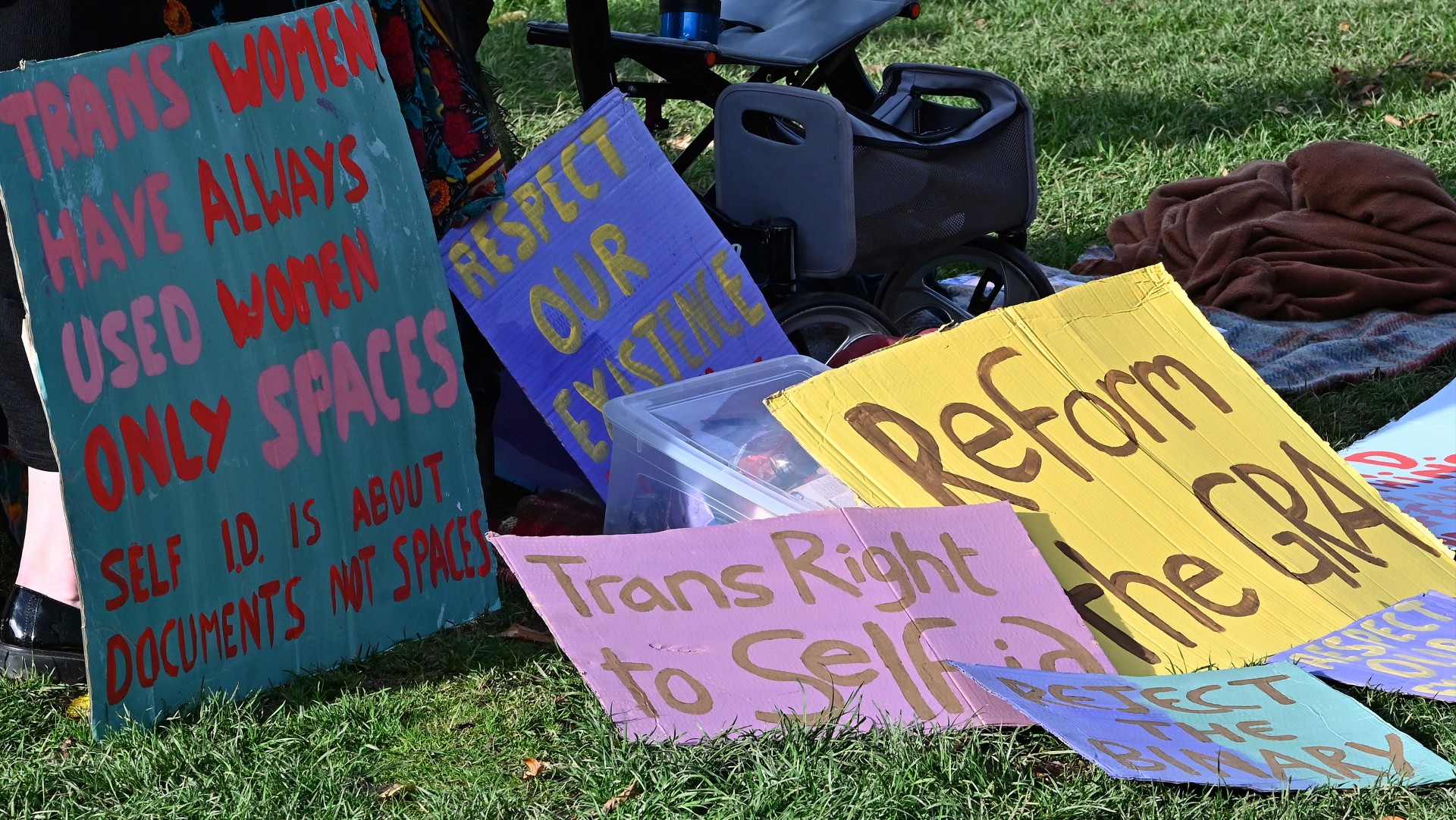The Section 35 order used to block Scottish laws
‘Veto’ provision used for first time by UK government in row over gender reform bill

A free daily email with the biggest news stories of the day – and the best features from TheWeek.com
You are now subscribed
Your newsletter sign-up was successful
Nicola Sturgeon has called the UK’s decision to veto a landmark piece of legislation passed in Holyrood a “full-frontal attack on our democratically elected Scottish Parliament and its ability to make its own decisions on devolved matters”.
Under Section 35 of the Scotland Act, Scottish Secretary Alister Jack has effectively blocked the controversial Gender Recognition Reform (Scotland) Bill from becoming law.
The move is expected to be challenged legally by the SNP-led government in Scotland, but has already sparked a constitutional crisis that could have far-reaching implications for the future of the union.
The Week
Escape your echo chamber. Get the facts behind the news, plus analysis from multiple perspectives.

Sign up for The Week's Free Newsletters
From our morning news briefing to a weekly Good News Newsletter, get the best of The Week delivered directly to your inbox.
From our morning news briefing to a weekly Good News Newsletter, get the best of The Week delivered directly to your inbox.
How does Section 35 work?
According to the House of Commons Library, Section 35 of the Scotland Act 1998 effectively sets out the Secretary of State for Scotland’s “veto” power for devolved legislation.
“The power is exercised through a negative statutory instrument presented to the UK Parliament, which would provide a legal instruction to the Presiding Officer of the Scottish Parliament not to present a bill to the King for Royal Assent,” it said.
In this case it means that although the Scottish Parliament has passed the Gender Recognition Reform Bill, it would not become law.
A 2012 Memorandum of Understanding said Section 35 should be used only as “a matter of last resort,” where the Scottish Secretary has “reasonable grounds to believe” that a Holyrood bill would either be “incompatible with the UK’s international obligations or not in the interests of national defence” or “would modify the law on reserved matters in such a way as to have an ‘adverse effect’ on the operation of the law as it applies to reserved matters”.
A free daily email with the biggest news stories of the day – and the best features from TheWeek.com
Under the provision, the Scottish Secretary has 28 days from the date the bill was passed by Holyrood to invoke Section 35.
Addressing MPs on Tuesday ahead of Thursday’s deadline, Scottish Secretary Alister Jack said the bill would impede operation of the UK Equality Act, and have an adverse impact on single-sex clubs, associations and schools and protections such as equal pay.
What happens next?
A Section 35 order “has never been used before and to government critics it is an undemocratic intervention by London to override the decision of elected representatives in Edinburgh, effectively undermining devolution”, said The National, which claimed the “move will unleash a constitutional war between Sunak’s government and the Scottish administration”.
“That is the reason it has been described as the ‘nuclear option’,” said The Guardian, which suggested a “slightly less confrontational alternative would have been for the UK government, under a provision also contained within the Scotland Act, to refer the bill to the UK supreme court for justices to decide whether it related to reserved matters outside Holyrood’s legislative competence”.
In response to Jack’s decision to invoke Section 35, Scottish First Minister Nicola Sturgeon told the BBC’s political editor Chris Mason that he was making a “profound mistake” and accused him of launching a “direct attack on the institution of the Scottish Parliament”.
She said it would “inevitably end up in court” and that the Scottish government would “vigorously defend this legislation”.
How will the stand-off be resolved?
The Scottish government could choose to amend and reintroduce the Gender Recognition Reform (Scotland) Bill, although almost nobody thinks this is likely.
This leaves a challenge to the UK Government’s Section 35 order via judicial review. The Commons Library website stated that “such a challenge could argue that the Secretary of State for Scotland lacked ‘reasonable grounds’ for believing the Bill would have an adverse impact on how the law operates with respect to reserved matters. A court would either find that the order was made lawfully or unlawfully. If the latter, then it would cease to have any legal force or effect and the Presiding Officer would be able to present the Bill for Royal Assent.”
The problem, said Sebastian Milbank in The Critic, is that “when Nicola Sturgeon calls the veto a ‘full-frontal attack on our democratically elected Scottish Parliament and its ability to make its own decisions on devolved matters’, and when Stonewall says it will ‘unlock constitutional strife’, they are talking nonsense. Constitutionally our democratically elected UK parliament has the ultimate say in this matter; and indeed whether devolution continues at all.”
Yet even if the legal route to resolution ultimately decides in favour of the UK government, as legal experts suggest, it may be overtaken by the constitutional crisis the Section 35 order has provoked.
-
 Health insurance: Premiums soar as ACA subsidies end
Health insurance: Premiums soar as ACA subsidies endFeature 1.4 million people have dropped coverage
-
 Anthropic: AI triggers the ‘SaaSpocalypse’
Anthropic: AI triggers the ‘SaaSpocalypse’Feature A grim reaper for software services?
-
 NIH director Bhattacharya tapped as acting CDC head
NIH director Bhattacharya tapped as acting CDC headSpeed Read Jay Bhattacharya, a critic of the CDC’s Covid-19 response, will now lead the Centers for Disease Control and Prevention
-
 ‘Not proven’ no longer: Scotland abolishes ‘bastard verdict’
‘Not proven’ no longer: Scotland abolishes ‘bastard verdict’Talking Point Scottish parliament to remove ‘legal idiosyncrasy’ in major reforms to the jury system
-
 Where does Labour stand on trans rights?
Where does Labour stand on trans rights?The Explainer Party plans to 'modernise and simplify' process of changing gender and vows to scrap guidance on teaching gender ideology in schools
-
 Battle of Britain: will Rishi Sunak block Scotland’s gender recognition law?
Battle of Britain: will Rishi Sunak block Scotland’s gender recognition law?Today's Big Question Prime minister reportedly set to use constitutional ‘nuclear option’ in showdown with Holyrood over the legislation